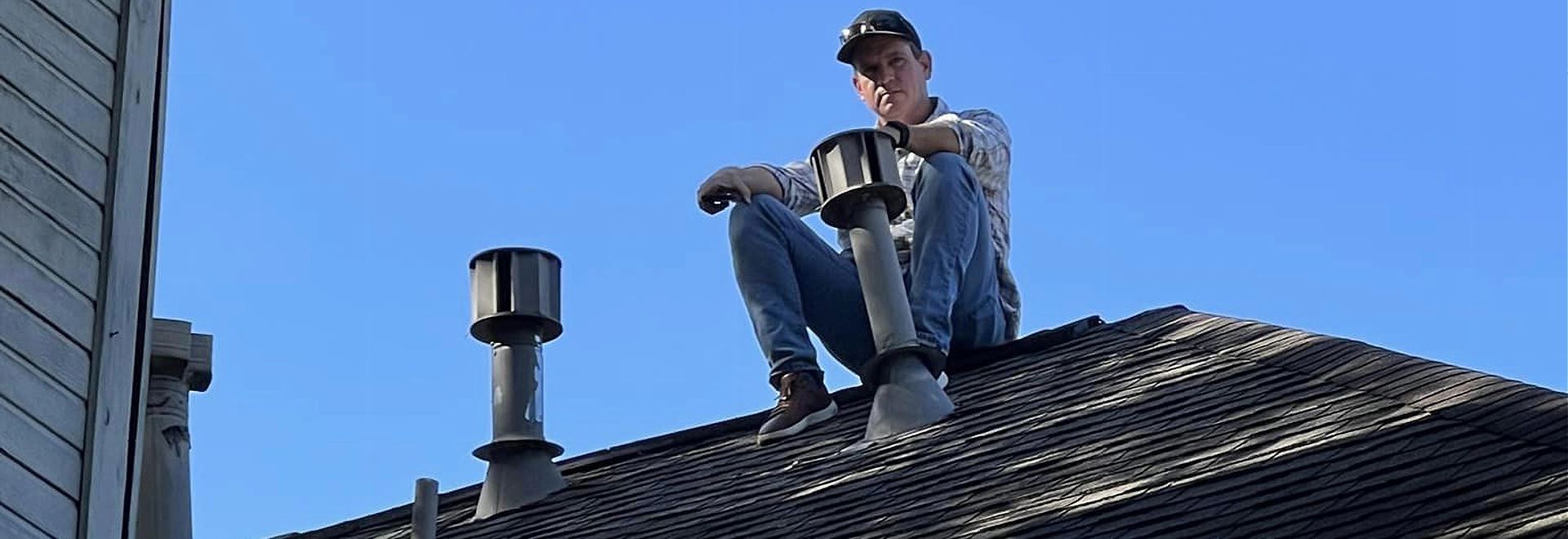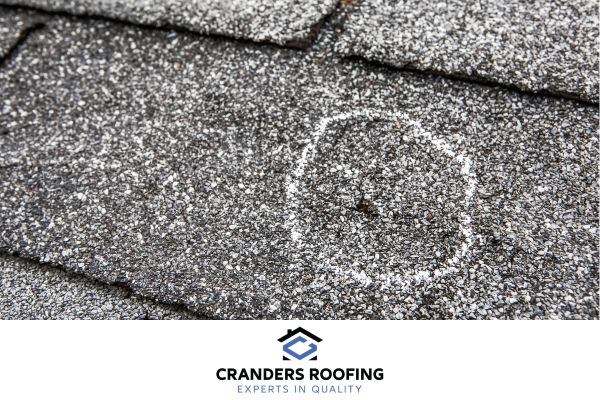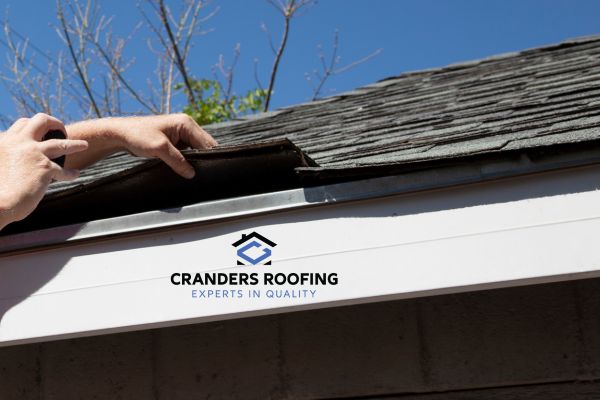
Roof Inspections
As a member of the Cranders Roofing team in Kingwood, TX, I can share some expert tips to help you determine when it might be time for a roof inspection. Roof inspections are crucial for maintaining your roofing system's safety, integrity, and longevity, especially in areas like Kingwood, where weather can be unpredictable. Here are some key indicators that it's time to consider a roof inspection:
- Age of Your Roof: Typically, roofs are designed to last between 20 to 30 years, depending on the material. If your roof is nearing or has surpassed this age range, it's wise to schedule regular inspections to monitor its condition.
- Visible Roof Damage: Signs such as missing, cracked, or curling shingles, damaged flashing, or sagging indicate that your roof may need attention. These can lead to leaks and more significant damage if not addressed promptly.
- After Severe Weather Events: The Kingwood, TX area is no stranger to harsh weather, including heavy storms, hail, and strong winds. After such events, it's a good idea to perform a visual inspection and consider a professional roof inspection to identify any damage that might not be immediately apparent.
- Leaks and Water Damage: If you notice signs of water damage on your ceilings or walls, it could be a symptom of a compromised roof. Water stains, mold, or a musty smell in the attic indicate that your roof may leak.
- High Energy Bills: Unexplained heating and cooling cost increases can sometimes be traced back to poor roof insulation. A roof inspection can identify areas where air may be escaping.
If you're in the Kingwood, TX, area and notice any of these issues, it might be time to schedule a roof inspection. Regular inspections can extend the life of your roof, prevent unexpected repair costs, and ensure your home remains safe and secure.
For professional roofing services, including comprehensive roof inspections, please contact us at Cranders Roofing. Our experienced team is here to help ensure your roof is in optimal condition. Visit our website for more information or to schedule your roof inspection today!


Cranders Roofing offers a comprehensive roof inspection service to ensure your home's or commercial property's safety and integrity. Our experienced team of professionals carefully assesses the condition of your roof, checking for any signs of damage, wear, or potential issues that could lead to leaks or structural problems. We follow strict guidelines and industry standards to provide you with a detailed report of our findings, along with recommendations for any necessary repairs or maintenance. With Cranders Roofing, you can rest assured knowing that your roof is in good hands and will continue to protect your property for years.
Frequency of Roof Inspections
Regular roof inspections are crucial to ensuring the longevity and safety of your home. Experts recommend having your roof inspected at least once a year, preferably in the spring or fall. By staying proactive with these inspections, you can catch any potential issues before they become costly repairs or replacements.
More frequent inspections may be necessary for those living in areas prone to severe weather conditions, such as heavy winds or intense heat. Additionally, if you notice any signs of damage or wear and tear on your roof, don't hesitate to schedule an inspection immediately. Remember, investing in routine inspections can save you from dealing with more significant problems down the line.
See here for more great tips.
Tailoring Inspections to Your Roof Material
When it comes to maintaining the integrity of your roof, tailoring inspections to your specific roof material is crucial in ensuring a comprehensive evaluation. Different roofing materials, such as shingles, tiles, metal, or flat roofs, have unique characteristics and vulnerabilities that require specific attention during inspections. For instance, asphalt shingle roofs may be prone to cracking and blistering, while metal roofs can be susceptible to corrosion and loose fasteners. By understanding the specific needs of your roof material, you can proactively address potential issues and extend the lifespan of your roof.
During roof inspections, you must consider the roof material's age, installation method, and overall condition. For older roofs, inspections should identify signs of wear and tear, such as missing or damaged shingles, rust spots on metal roofs, or water pooling on flat roofs. Additionally, understanding how your roof material reacts to weather conditions and environmental factors can help tailor inspections to target potential weak points and prevent costly repairs. By customizing your roof inspections to your roof material, you can better protect your investment and ensure that your roof remains in top condition for years.
Hiring the Right Roof Inspector
When hiring a roof inspector, it is crucial to prioritize experience and qualifications. Seek out a professional who has a proven track record in the industry and possesses the necessary certifications. A knowledgeable roof inspector will be able to accurately assess the condition of your roof and identify any potential issues that may need attention.
In addition to experience, consider the reputation of the roof inspection company. Reading online reviews and asking for references can provide insight into their work quality and customer satisfaction. A reputable inspector will communicate effectively, provide detailed reports, and offer transparent pricing for their services.
Qualities to Look for in a Roof Inspection Company
When choosing a roof inspection company, expertise is paramount. Look for a company with a solid track record of conducting thorough inspections and accurately identifying any issues. Experience in working with various roofing materials and styles is a crucial indicator of a company's competence. A reputable company should also have the necessary certifications and be up-to-date with the latest industry standards and practices to ensure a high-quality inspection.
Another crucial quality to consider is the company's reliability. A reliable roof inspection company should be punctual, responsive, and transparent in their communication. They should be able to provide clear explanations of their findings and recommendations, as well as detailed reports outlining the condition of your roof. Additionally, a trustworthy company will stand behind its work and be available to address any follow-up questions or concerns you may have.
Importance of PostStorm Roof Inspections
After a severe storm passes through an area, one of the crucial tasks that homeowners often overlook is inspecting the condition of their roofs. Post-storm roof inspections are vital to addressing any potential damage promptly and effectively. Delaying or neglecting these inspections can lead to more extensive and costly repairs down the line.
During post-storm roof inspections, homeowners should carefully examine their roofs for signs of damage, such as missing or damaged shingles, leaks, or cracks. It is essential to address any issues promptly to prevent further damage to the roof's structure and the home's interior. By conducting thorough post-storm roof inspections, homeowners can identify and fix problems early on, ultimately saving them time, money, and headaches in the long run.
Assessing Damage After Severe Weather Events
Following severe weather events such as heavy storms, hurricanes, or tornadoes, it is crucial to promptly assess the damage to your roof to prevent further issues. Wind, hail, and flying debris can cause significant harm to your roof, compromising its structural integrity and leaving it vulnerable to leaks and additional damage. Inspecting your roof after a severe weather event allows you to identify any issues early on and take the necessary steps to address them before they escalate into more extensive and costly problems.
It is recommended to conduct a thorough inspection of your roof from the ground and climb up to see if it is safe. Look for signs of missing or damaged shingles, dents, or cracks in roofing materials and any visible signs of water damage or leaks. Pay attention to areas where water could penetrate, such as around flashing, vents, or chimneys. If you notice any concerning issues, it is advisable to contact a professional roof inspector to conduct a more detailed assessment and recommend the appropriate repairs or maintenance to ensure the longevity and performance of your roof.
FAQS
How often should I have my roof inspected?
It is recommended to have your roof inspected at least once a year, preferably in the fall before winter weather sets in. However, if you've experienced severe weather or notice issues with your roof, consider having it inspected more frequently.
What factors should I consider when tailoring roof inspections to my roof material?
Different types of roofing materials require different maintenance and inspection schedules. Factors to consider include the age of the roof, the type of material used, and the climate in which your home is located.
What should I look for when hiring a roof inspector?
When hiring a roof inspector, look for a professional with experience in inspecting roofs similar to yours. Ensure they are licensed and insured, and ask for references from previous clients.
What qualities should I look for in a roof inspection company?
A reputable roof inspection company should have a good reputation, be transparent in their practices, provide detailed reports, and offer fair pricing. It's also important to choose a company that communicates well and is responsive to your needs.
Why are post-storm roof inspections important?
Post-storm roof inspections are crucial to assess any damage caused by severe weather events such as hail, high winds, or heavy rain. Identifying and repairing damage promptly can prevent further issues and prolong the life of your roof.
